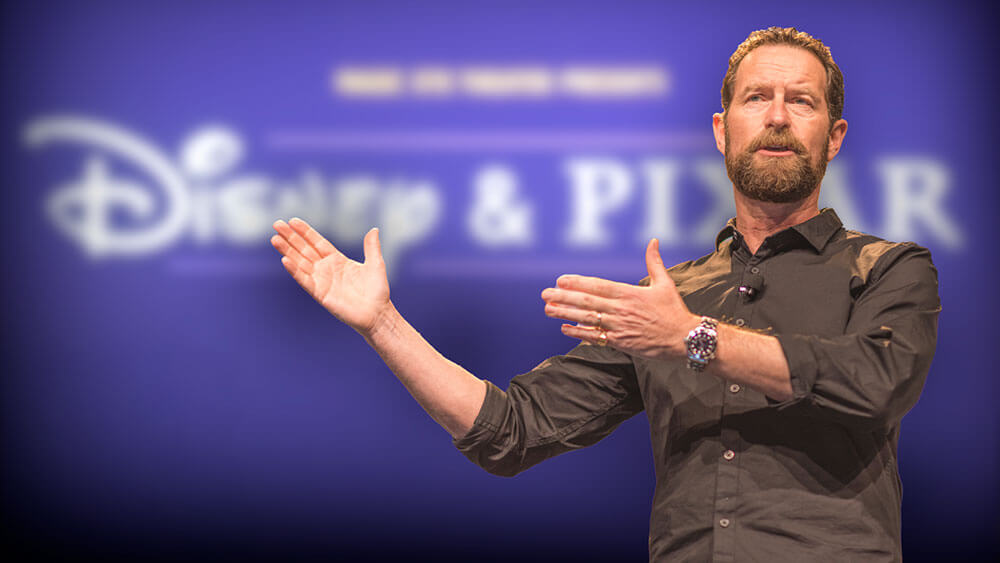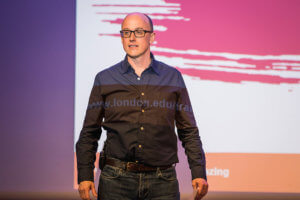
Duncan Wardle, Founder of creative consultancy id8 & innov8, says his company “places the end-user at the core of the creative process.” (Courtesy Duncan Wardle)
By Morgan Awyong
Creativity is often cited as the magic pill in business. The refrain “out-of-the-box,” tired as it sounds, is often still drilled in as the method to success — be it creating an incentive travel progamme, scripting an engaging presentation, or designing an immersive brand experience at an exhibition.
New tech, like projection mapping and virtual reality, can provide creative solutions, but with often clumsy hardware and limited engagement time on a show floor, there’s a risk of being “gimmicky.” So, how can the business events industry be more creative?
Charlotte Pearce, CEO and co-founder of Inkpact, said she believes the key to creativity and business success is being human.
Her company is evidence of that. Pearce describes Inkpact as a “technology company with a difference.” Leveraging automation, she’s built up a tribe of scribes who help global companies stay in touch with their customers the old-fashioned way — through handwritten notes, or what Pearce calls “offline moments.”
In an age of relentless digital communication, Pearce has combined technology with creative flare. She attributes her success to her ability to “genuinely connect” businesses with people and she encourages all marketers to focus on fulfilling basic human needs while offering a clear purpose.
Founder of creative consultancy id8 & innov8, Duncan Wardle, agrees. Similarly, his company “places the end-user at the core of the creative process.”
Wardle says the product-centric business models that have dominated for more than 100 years are no longer relevant. Today, the consumer must be front and centre. A former vice president of innovation and creativity for the Walt Disney Co., Wardle admits that he gleaned his most exceptional insight 10 years ago, when he spent a day in the living room of end-users.
“You cannot say you’re a consumer-centric organisation if you’ve never met one of your consumers,” he explained.

Greg Orme sees an opportunity for creativity to become the “superpower” that will transform business. (Courtesy Greg Orme)
While Wardle acknowledges the potential threats to creative innovation (time is the biggest barrier, followed by uncertainty surrounding the fourth industrial revolution), he urges event professionals to call upon their sense of curiosity, imagination, and intuition.
Similarly, business consultant and international speaker Greg Orme firmly champions soft skills as desirable traits for the future-ready leader. With artificial intelligence set to overtake administrative and data-driven tasks, Orme sees an opportunity for creativity to not only come to the fore, but to become the “superpower” that will transform business.
“Think about how you can develop the intrinsically human skills of creativity, curiosity, passion, negotiation,” he said. “These are the soft skills that will enable us to swim, rather than sink, in the fourth industrial revolution.”
As such, he believes in meta learning and nurturing curiosity with lifelong adult education. He suggests setting aside five hours a week for learning with, for example, scheduled reading time, training programmes, or even establishing a mentor-mentee relationship with regular, open conversation.
“Unless you have structured time to develop yourself, you will not keep up with this changing world,” he said.

Charlotte Pearce, CEO and co-founder of Inkpact, believes the key to creativity and business success is being human. (Courtesy Inkpact)
